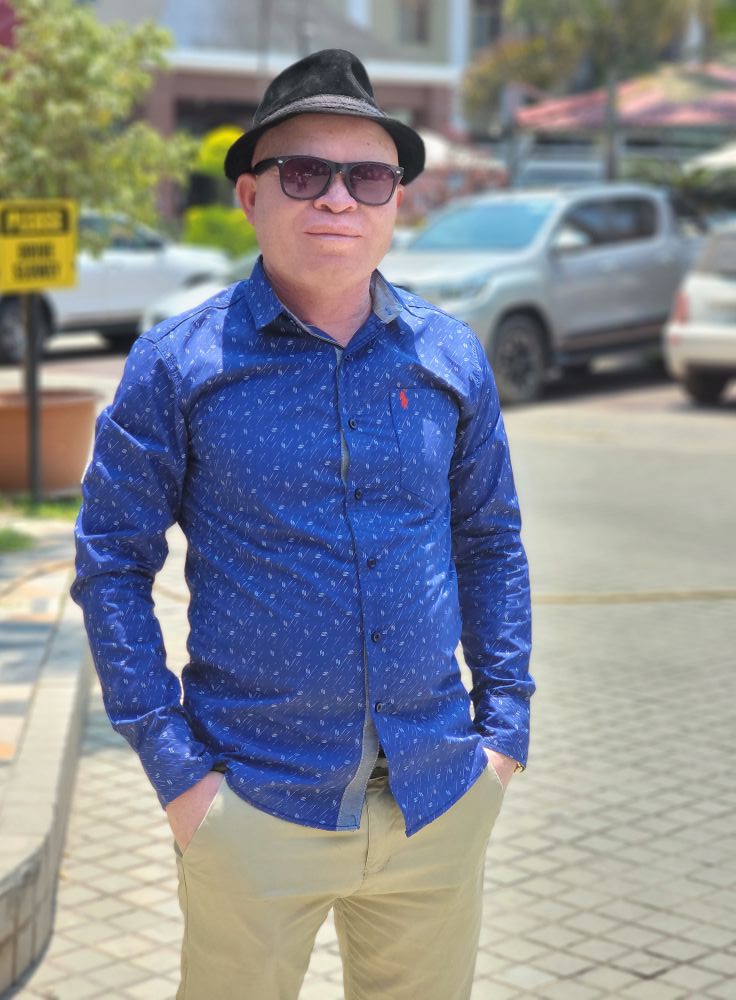Development of the National Action Plan on Albinism constant John Chiti, has called on the police to strengthen their role in addressing attacks against people with albinism.
Mr Chiti who is also Albinism Foundation of Zambia Board Chairperson says there is need for the police to improve record-keeping with cases of persons with albinism.
Mr Chiti noted that at present, it is not easy to track records of cases of attacks involving people with albinism.
He was speaking during a provincial training on Access to Justice for Persons with Albinism held in Kasama District.
“When they open the document or record of a case, it does not indicate whether the person involved is a person with albinism. As a result, it’s difficult to know how many cases are being reported, because they are just looking at names and gender without specifying if the person is living with albinism. It is hard for us to track and follow these cases in this situation,” he said.
Mr Chiti also called on the judiciary and the National Prosecution Authority to expedite cases involving attacks on people with albinism, stating that such cases often die a natural death due to slow prosecution.
“Justice delayed is justice denied. We want these cases to be fast-tracked so that they can be prosecuted in a timely manner,” he emphasized.
Mr Chiti also called for stiff penalties for perpetrators of attacks on people with albinism, similar to the punishments given in cases of defilement.
“Even ordinary people know that if you are caught in a defilement case, the minimum sentence is 15 years, going upwards. This is the level of punishment we want for those who attack people with albinism. Whoever is found guilty should face significant consequences,” he said.
He further appealed to the media to help follow up on such cases, noting that some cases that are at the police level and others that are in court go unreported.
He urged the media to assist in raising public awareness so as to send a message to would-be offenders.
“The media should follow up on these cases, ask how far they have gone, visit the courts, get the stories, and publish them. By doing so, we will send a clear message to the public that these are serious crimes, and perpetrators will be prosecuted. If the media does not follow up, it may seem like people are getting away with these crimes,” he said.
And Sisters of Jesus Out of the Shadows Project Programme Officer Maseka Lumayi emphasized on the need for raising awareness for people with albinism.
Mr Lumayi noted that they have observed a rise in attacks against persons with disabilities, many of which go unreported, especially in rural areas.
“The workshop aims to train judicial actors from various government sectors to implement measures and interventions for the protection of the rights of persons with albinism, particularly in terms of access to justice,” he explained.
Meanwhile, Stefania Muma, a survivor of physical attacks on persons with albinism, appealed to government for better protection.
She shared her fears and personal experiences of living in constant danger.
“People think that if they kill us, they will become rich, Government should help us with proper protection. If there is no adequate protection, we will continue to be attacked. It’s better to prevent such attacks than to act after someone has been killed,” she stressed.
“We are being talked about as if we are worth a dollar in the areas where we live, and as we move, we are scared. I speak from experience. Most nights, I cannot sleep because I stand against the door to prevent myself from being attacked,” she added.





